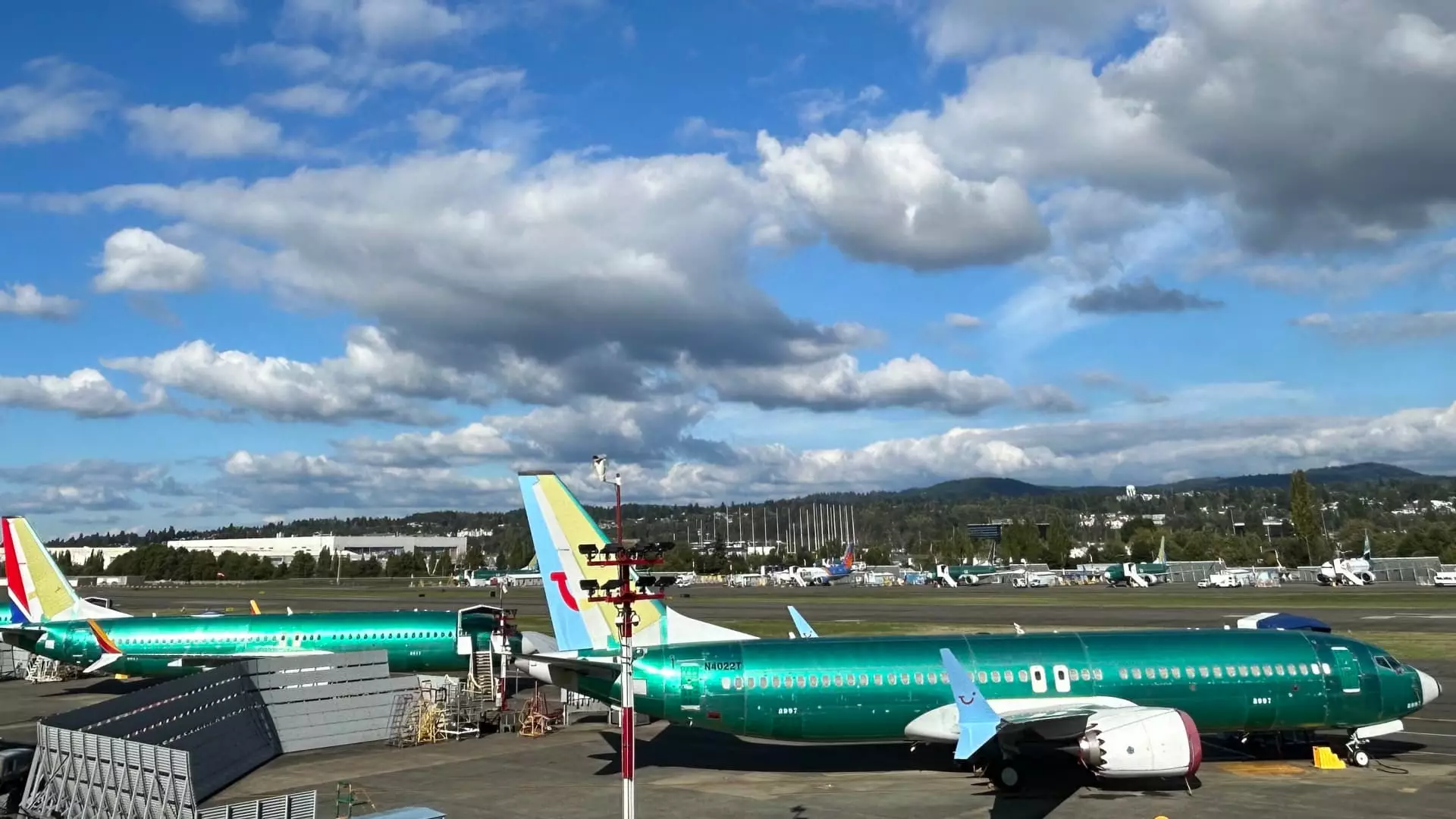The production of the new Air Force One aircraft, a topic that has weighed heavily on the administration of President Donald Trump, highlights both the complexities of military procurement and the multifaceted relationship between government officials and private enterprise. The two Boeing 747s intended for presidential use have proven to be an intricate puzzle, marked by significant delays and soaring costs. Despite the contract being negotiated for $4 billion during Trump’s first term, the planes are lagging years behind schedule, leaving uncertainty about their availability during the remainder of his presidency. Such inefficiencies not only raise questions about bureaucratic management but also spotlight the immense challenges faced by large defense contractors like Boeing.
The challenges surrounding the Air Force One program have not been trivial; cost overruns have accumulated to over $2 billion, emphasizing the struggles of Boeing in managing production timelines and expenses. These figures paint a grim picture of the current state of defense aviation and bring to light the implications for the U.S. government, which relies on timely delivery of its essential equipment for seamless operations. Trump’s evident frustration with the stalemate is compounded by the gravity of the situation, one intensified by the pandemic recovery phase that is already burdening various sectors of the economy, including air travel.
During recent communications, Trump has expressed his dissatisfaction with Boeing’s inability to meet the delivery schedule, leading him to contemplate alternative options for securing the necessary aircraft. The president’s visit to inspect a parked 747 in Florida suggests a sense of urgency and a willingness to explore various avenues. Such a scenario raises an intriguing avenue for discussion: what happens when a significant government project faces delays—especially one of this caliber? The stakes involve not only military readiness but also the perception of U.S. efficiency on a global stage.
The involvement of Elon Musk adds an additional layer to the Air Force One saga. As an advisor with deep trenches in the aviation and aerospace industry through SpaceX, Musk’s engagement has been identified as a potential lifeline for Boeing to navigate its current tribulations. Kelly Ortberg, Boeing’s CEO, highlighted Musk’s capabilities in streamlining production processes—a perspective that some may view as unconventional, given Musk’s direct competition with Boeing in certain sectors. By leveraging Musk’s insights, Boeing may be able to shed non-essential constraints, potentially accelerating the timeline for Air Force One delivery.
However, this partnership raises ethical and strategic questions about the intertwining of state and corporate interests. When private entities become involved in government contracts, does there emerge an imbalance of power or undue influence? While Musk is undoubtedly a brilliant innovator, the fundamental question remains: how do we ensure that the collaboration does not blur the lines between national priorities and corporate incentives?
Boeing’s difficulty with the Air Force One contract reflects broader challenges within the commercial aviation sector, where many airlines have expressed frustrations over their delayed aircraft deliveries as they work to re-establish operations amidst a booming travel demand. Recent commentary from executives at United Airlines and Southwest Airlines indicates a cautious optimism regarding Boeing’s capacity to right the ship. They assert that under Ortberg’s leadership, Boeing has begun to display enhanced reliability as a supplier. This optimism is a critical indicator for the sector, suggesting potential for recovery and renewed faith in the aviation manufacturing giant.
Furthermore, Ortberg’s confidence in the company’s supply chains points to a turning point that may ultimately affect the timely production of the widely anticipated 737 Max aircraft. Given that these planes are crucial for many airlines’ operations, Boeing’s turnaround could relieve some pressures from the industry at large and restore trust in their ability to deliver, thereby reinvigorating the market.
The delays in delivering the new Air Force One 747s necessitate a critical reassessment of how government contracts are managed, a reflection on the challenges inherent in merging corporate ambitions with national interests, and a look forward to a potentially more responsive aviation supply chain. As Boeing navigates through its difficulties and enters a phase of recovery, the unfolding dynamics will likely serve as a blueprint for future procurement strategies and collaborations in defense contracting. The resolution of these challenges will not only influence the Trump administration but will also leave lasting implications on how military projects are approached, executed, and conceptualized moving forward.

Leave a Reply